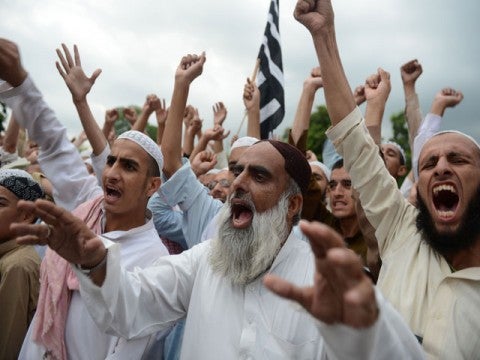The French press, the profit motive and the law

Is freedom of expression an absolute right? I've been wrestling with this over the last few days, starting with the Muslim furore over the anti-Islamic video made in California, followed by the publication of the Duchess of Cambridge topless pictures by the French magazine Closer, which raised privacy issues, and now the cartoons mocking the Prophet Mohamed in a French satirical weekly.
It's pretty obvious that the French journalists were driven entirely by the profit motive in their rush to publish. Both Closer and Charlie Hebdo brought forward their publication date and sold out like hot cakes. Closer knew that they risked being fined for breaking France's strict privacy laws but went ahead in the knowledge that their profits would outweigh the risk. Fair enough. But I was troubled that neither publication took into account the bigger picture before hitting Send. The editor of Closer said there was absolutely no debate in their newsroom over the appropriateness of publishing the paparazzi pictures of the Duchess. What short memories they have - it was in Paris after all where Princess Diana, the mother of Prince William, met her death while her car was being chased by at least one photographer at high speed through a tunnel.
As for Charlie Hebdo, which has a long record of provocative editions, the editor was quoted as justifying the crude cartoons because they reflected a big news story (the fallout from "The Innocence of Muslims"). The magazine's editor, known as Charb, has had police protection since an arson attack on Charlie Hebdo's offices last November. Did he consider that more people might die as they poured fuel on the flames? As a precaution, the French government announced the closure of embassies and some schools in 20 countries around the Middle East and beyond. That's some bill that the French taxpayer will have to pick up.
In the last couple of days I've heard Salman Rushdie, who has first hand experience of the power of radical Islam, standing up for free speech with no taboos as he talks about his new memoir. I've also listened to those who say that freedom has its limits. While it's clear that there is unfortunate manipulation of the fanatical and violent reaction to the anti-Islamic video, I also think that in this globalised world we should think before we shoot (ourselves in the foot).
Luckily in our democracies there is legal recourse. The Royal family was right to challenge Closer in a French court which upheld their complaint. Charlie Hebdo is also being sued, for incitement to hatred. Let's just make sure that the two magazines are not held up as journalistic models. They are hypocrites, defending the principle of press freedom while raking in the money.
Join our commenting forum
Join thought-provoking conversations, follow other Independent readers and see their replies
Comments
Bookmark popover
Removed from bookmarks